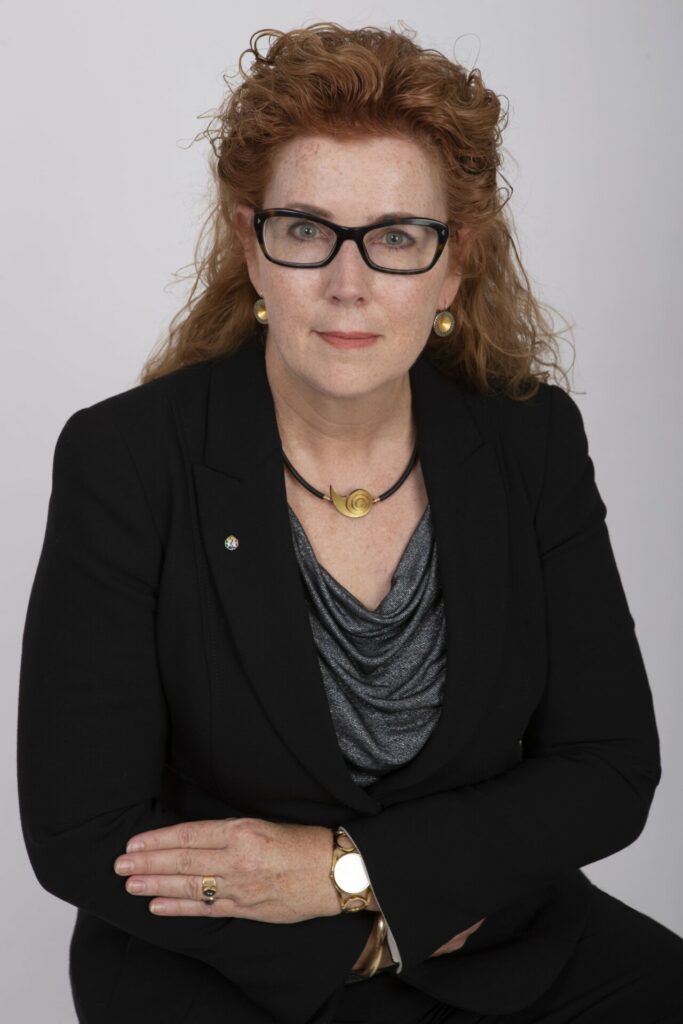Dr. Anke Diehl
Chief Transformation Officer at Essen University Hospital und Consortium leader of the KI.NRW-Flagshipproject SmartHospital.NRW
»The goal of SmartHospital.NRW is to enable personalized, precise and empathic future medicine.«
Anke Diehl, MD, is Chief Transformation Officer at University Hospital Essen and consortium leader of the KI.NRW flagship project SmartHospital.NRW. We talked to her about what a smart hospital is and how artificial intelligence is being used in the process.

© Universitätsmedizin Essen
You were awarded the “Medical Woman of the Year AWARD 2021” by the German Medical Award for your work on the topic of smart hospitals. What is a Smart Hospital?
At University Hospital Essen, we understand a smart hospital, an “intelligent hospital of the future”, to be a digitized and process-optimized hospital equivalent that places people even more at the center. Essentially, it resembles a control unit that works intelligently and, above all, across sectors and focuses on the patient’s comprehensive medical history. There are no traditional boundaries in the form of hospital walls; instead, a wide variety of medically relevant data from patients is included and taken into account for diagnoses and therapy planning. In the process, actual hospital medicine is improved through the use of digitization and artificial intelligence (AI). In addition, some processes are being outsourced, e.g., via telemedicine solutions. The overall goal here is to enable personalized, precise and empathetic future medicine.
How exactly is AI used in a smart hospital and how can it specifically contribute to targeted and individualized treatment?
AI, or machine learning in general, offers great potential, especially when it comes to processing and analyzing data. If the corresponding systems are securely trained on medical data, they can be used, for example, to support the diagnosis of diseases by highlighting abnormalities for the attending physicians. Other areas of application may include the use of voice assistance or voice control systems, or the semi-automatic evaluation of medical texts. Taken together, intelligent systems can relieve medical staff and at the same time increase efficiency, since routine tasks can be partially taken over completely, and more complex tasks can be significantly supported. This improves the treatment of individual patients as well as the daily routine of staff, which precisely reflects the focus on people. However, no one is to be replaced; the focus is on support and relief to allow more time for empathetic interaction with the patients.
What is the significance of the SmartHospital.NRW project for NRW and how can other hospitals become Smart Hospitals?
Since 2015, University Hospital Essen set out on the path to becoming a smart hospital and is now one of the top smart hospitals nationally and internationally. Not least due to the pandemic, the importance of digitalization and AI in medicine has been recognized, so that more and more hospitals throughout Germany are relying on these technologies. In order to be able to provide hospitals in NRW in particular with a kind of roadmap for developing into a smart hospital based on our experience, we are working with the partners within the SmartHospital.NRW consortium project to develop a corresponding procedure model. This allows a hospital to check how “AI-ready” it actually already is, and then receives appropriate measures suggested to be able to reach the next level(s). In this way, we see an opportunity for NRW to develop nationwide appeal.
Anke Diehl, MD, has been Chief Transformation Officer at University Hospital Essen since the beginning of 2021 and is consortium leader of the KI.NRW flagship project SmartHospital.NRW. Having already worked clinically in neurology from 1994, then in neuroradiology from 1998, she moved to the state service of North Rhine-Westphalia after a total of 15 years in clinical care. Here she headed the department of care structure development at the Landeszentrum Gesundheit NRW (LZG.NRW) since 2012. In 2018, she returned to Essen University Hospital as Digital Change Manager. Since then, she has been very successful in shaping the transformation process to a smart hospital. In addition to her current position as Chief Transformation Officer, she also heads the associated Digital Transformation staff unit. In October 2021, she was named “Physician of the Year 2021” for her work on the topic of digitization in medicine, including her work in the SmartHospital.NRW project. She is a member of numerous advisory boards and expert committees, such as the Interop Council convened by the BMG and Gematik. The University Hospital Esen was already named Germany’s third best hospital in the university hospital category in June 2021 and, along with Charité, is one of the two best Smart Hospitals.